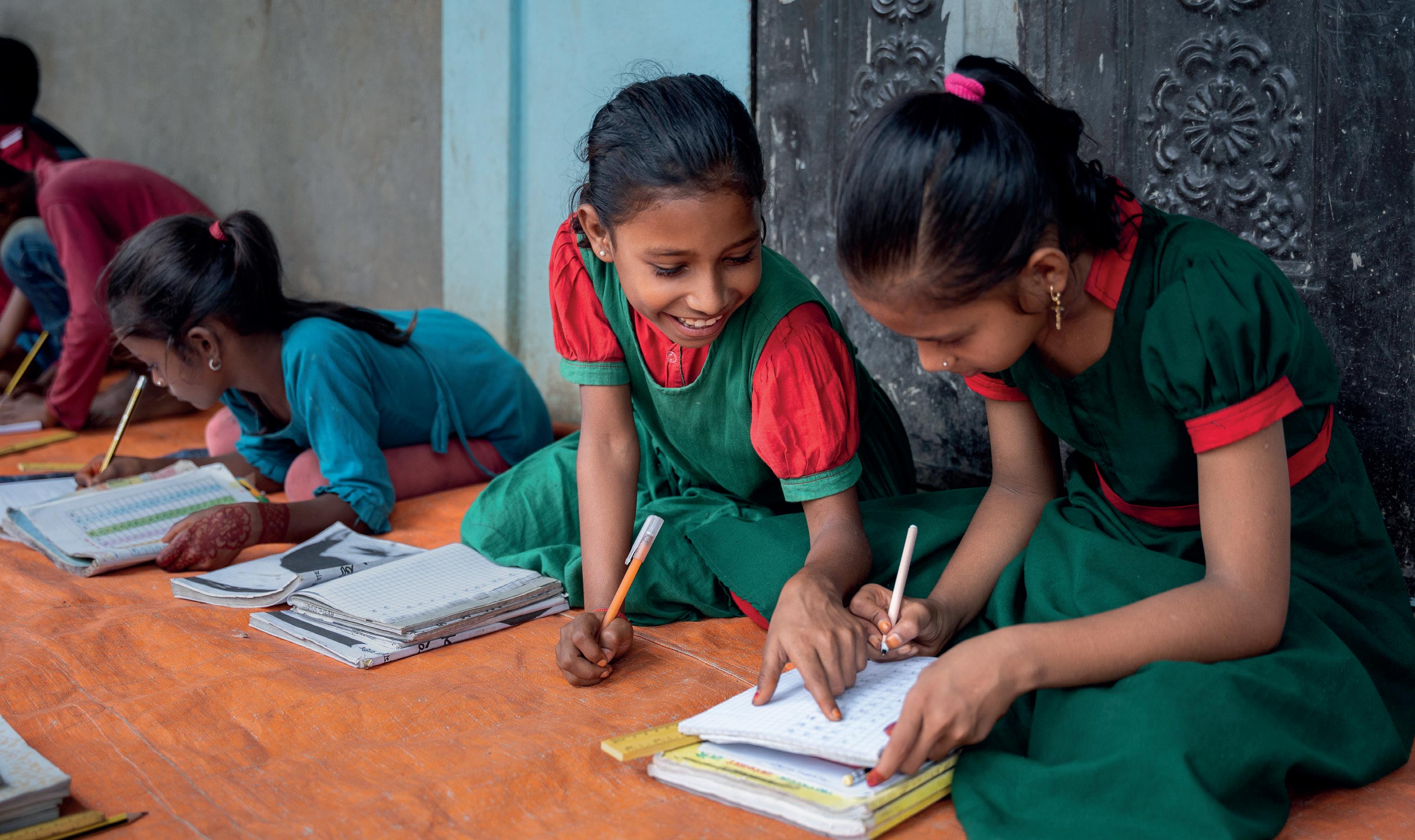

Your Later Life
“Everyone, regardless of age, deserves to live their life with dignity and respect.”
Alison Marshall, CEO, Age International Page 04

“A charitable gift in a will, no matter what size, gives us all that chance to play our part.”
Lucinda Frostick, Director, Remember A Charity Page 08


Help build a future where every deaf child has language at their fingertips
Over 90% of deaf children are born to hearing families with no knowledge of BSL. Your legacy will help us bring BSL into their lives and shape a future where every deaf child grows up with access to language and community from the start.
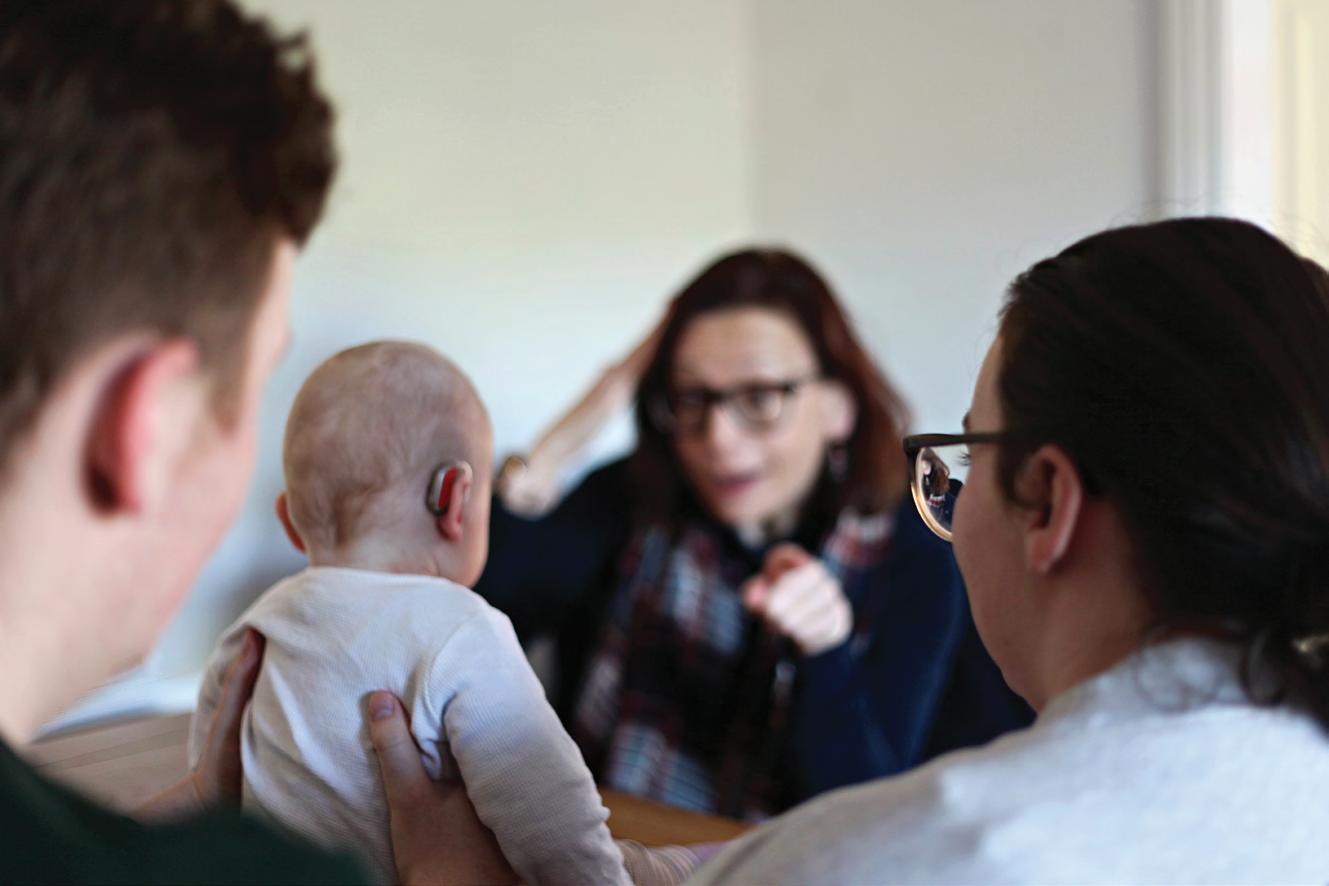
~Lucinda Frostick, Director,

The annual event celebrating later life with activities for everyone


OToo many older people feel alone. In the UK, 1.5 million older people in the UK never leave their homes for a social event.1 Silver Sunday aims to tackle this.
ne of the most important parts of later life is making, maintaining and sustaining connections. It might be keeping up with friends or meeting new people. Many older people tell me, “It’s what keeps me going.” For many others, that sense of community brings purpose and a sense that you still matter.
Gathering to celebrate older people
You are a part of a wider society. Yet, the reality for too many people is miles from this. One in five older people (2.7 million or 21%) say that they don’t want to burden family and friends by telling them they’re lonely. 2
Age UK’s Silver Sunday aims to change that; it’s one of the biggest celebrations of older people in the UK. Held annually on the first Sunday in October, it’s a special time of the year when all generations come together to celebrate older people. We ask people to think about those who might be feeling lonely, giving them the chance to reconnect with their community, try new things and make new friends.
An activity for everyone
Last year, hundreds of events took place all over the country. They are run by generous local charities and businesses — each one as vibrant and diverse as their older guests. We expect this year’s celebrations to reach even more people, with a
huge variety of activities including history tours at London Zoo, leisure classes with Everyone Active, pond dipping in Devon, walking football in Oxford and a Tea Dance in Wales. All events are free or low-cost to help remove any financial barriers that might discourage people from attending.
It was a joy to attend Age UK Barnet’s Silver Sunday event last year and see how a single day can make a difference to so many people. There was something for everyone: Bollywood dancing, yoga sessions, choir performances and even a ukulele band. For many of the older guests, having this to look forward to meant the world.
Join the event this October Isolation isn’t inevitable. Events like Silver Sunday offer more than a rare moment of connection; they’re often a stepping stone for those who have become disconnected from their communities to reintegrate. Silver Sunday will be going strong for many years to come. Every October, I’ll be looking forward to learning, laughing and dancing at as many activities as I can get to and as I enter my own later life.
References
1. Age UK calculation based on data (weighted to be representative of the UK population) from Yonder online and telephone omnibus research polling for Age UK, November 2023.
2. Age UK calculation based on data (weighted to be representative of the UK population) from Yonder online and telephone polling for Age UK, November 2024.
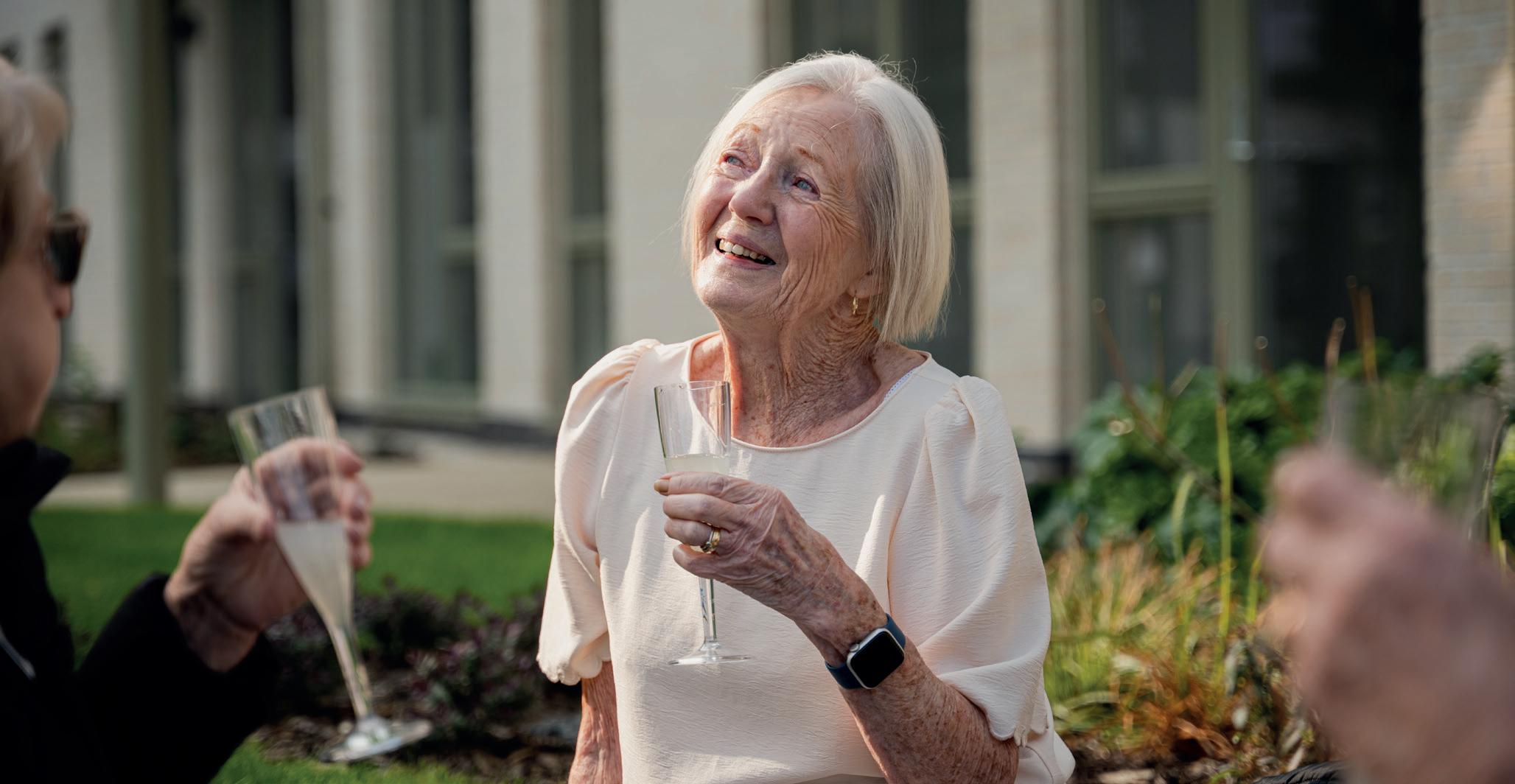
Older people are making a lifestyle move that redefines retirement
Independent later living offers older people the chance to buy their own home in a community of like-minded residents. It’s a great way to boost physical and mental wellbeing.
These days, people are living longer, more active lives. So, we need to rethink the way we view retirement, says Khuram Kaur, Sales Director at Life in Place from Anchor. “Retirement doesn’t mean retiring from life. For many people, it’s actually the start of something new.”
What it means to live well in later life Life in Place is part of Anchor, England’s largest not-for-profit provider of housing and care for people in later life. The new brand is focused on creating homes for over-55s that combine independence with flexibility.
“People are often afraid to move because the family home feels like a safety net,” Kaur explains. “But in reality, it can become a burden: the upkeep, the stairs, the garden, the costs. We talk about ‘rightsizing’ rather than downsizing. It’s not about losing space; it’s about choosing a home that works for the way you want to live now and into the future.”
Living with independence and control
What sets Life in Place apart is the way people can buy. With both Shared Ownership and outright sale available, developments are open to a wide range of customers. “Not everyone coming to us is in the same financial position,” Kaur says. “Some want to release equity and free up income, while others want a secure home they can afford without stretching themselves. Having a choice makes independent later living realistic for many more people.”
The homes themselves are designed to be manageable and future-proof, typically one or two-bedroom apartments, sometimes bungalows, with shared lounges and landscaped gardens. However, the real difference, Kaur argues, is in the lifestyle shift.
“People tell me that once they’ve moved, they feel a huge sense of relief,” she says.
“They’ve taken control of their future, removed responsibility and gained a lifestyle that’s safer, easier and often more sociable. One resident said to me: ‘I didn’t realise how much I was missing until I moved here.’”
Improving quality of life while being part of a community Community is a strong theme, but not in a forced way. Kaur explains: “It’s about having the opportunity to join in, not the obligation. Some people love the coffee mornings, fitness classes or even the Friday night parties, while others prefer a quieter life. Both work. What matters is the choice.”
For Kaur, the bigger challenge is awareness. “Too often, people think there are only two options: stay put and struggle or move into care when you have no choice left,” she says. “Independent later living provides a third way. It helps people stay healthier for longer, avoid unnecessary care costs and live in a home that gives them freedom.”
She adds: “We need to retire the word ‘retirement.’ It suggests an ending, when in reality, this stage of life is about independence, choice and possibility. That’s what Life in Place is about.”


How we chose to live our later years with convenience
Our previous rental home had become too small for our lifestyle, so we began looking for a new place. While my wife Pat had spent part of her childhood in Standish, it was a relative who introduced us to The Standard in Standish, Wigan. As soon as we visited, we were struck by the welcoming atmosphere, the sense of security and the appeal of living among others at a similar life stage.
A simpler, more affordable way to buy a home
Travel is an important part of life for us. We’ve visited all six continents and have a trip planned to New Zealand and the South Pacific Islands this year. So, the development’s shared ownership scheme appealed to us as it minimised the financial barriers to us travelling. The fact that the development is a new build also took away the stress and costs of maintenance. We feel extremely secure here, which gives us peace of mind, whether we’re at home or away. We purchased a 25% share in our home, and the buying process was smooth from start to finish. The sales team was helpful and responsive throughout — even over the Christmas period.
A home that suits your needs
Our apartment is spacious and bright. We’ve converted the second bedroom into a walk-in wardrobe, thanks to the communal guest suite that makes hosting visitors easy. We’ve been able to customise our space too, like adding an oak folding door to separate the openplan living area.
Secure and low-maintenance living
Though we’ve only lived here a short while, we already feel very much at home. Other residents we’ve seen appear very happy and content. They enjoy the various activities available to them, although there is no pressure to join in if you don’t want to. The other great benefit is that home-owning chores like gardening and general maintenance are things of the past. The Standard offers exactly what we were looking for: a secure, welcoming and maintenance-free lifestyle that supports how we want to live now — and in the years to come.

INTERVIEW WITH Khuram Kaur Sales Director, Anchor
New year, new home. In January, we moved into a new two-bedroom apartment at a later living development in Standish, Wigan.
WRITTEN BY Tony Greenway
WRITTEN BY Tony Greenway To find out more
the QR code
Image provided by Anchor Life in Place
Testimonial from Paul and Pat, residents at a later living development in Standish, Wigan.
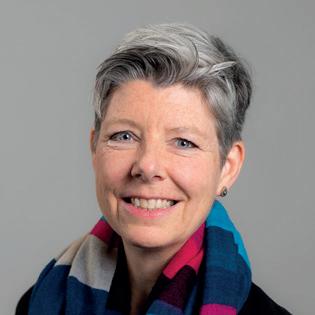
Alison Marshall CEO, Age International
The community making the world a better, fairer place for older people
Everyone, regardless of age, deserves to live their life with dignity and respect. That’s why Age International has created ‘Grandparents United.’
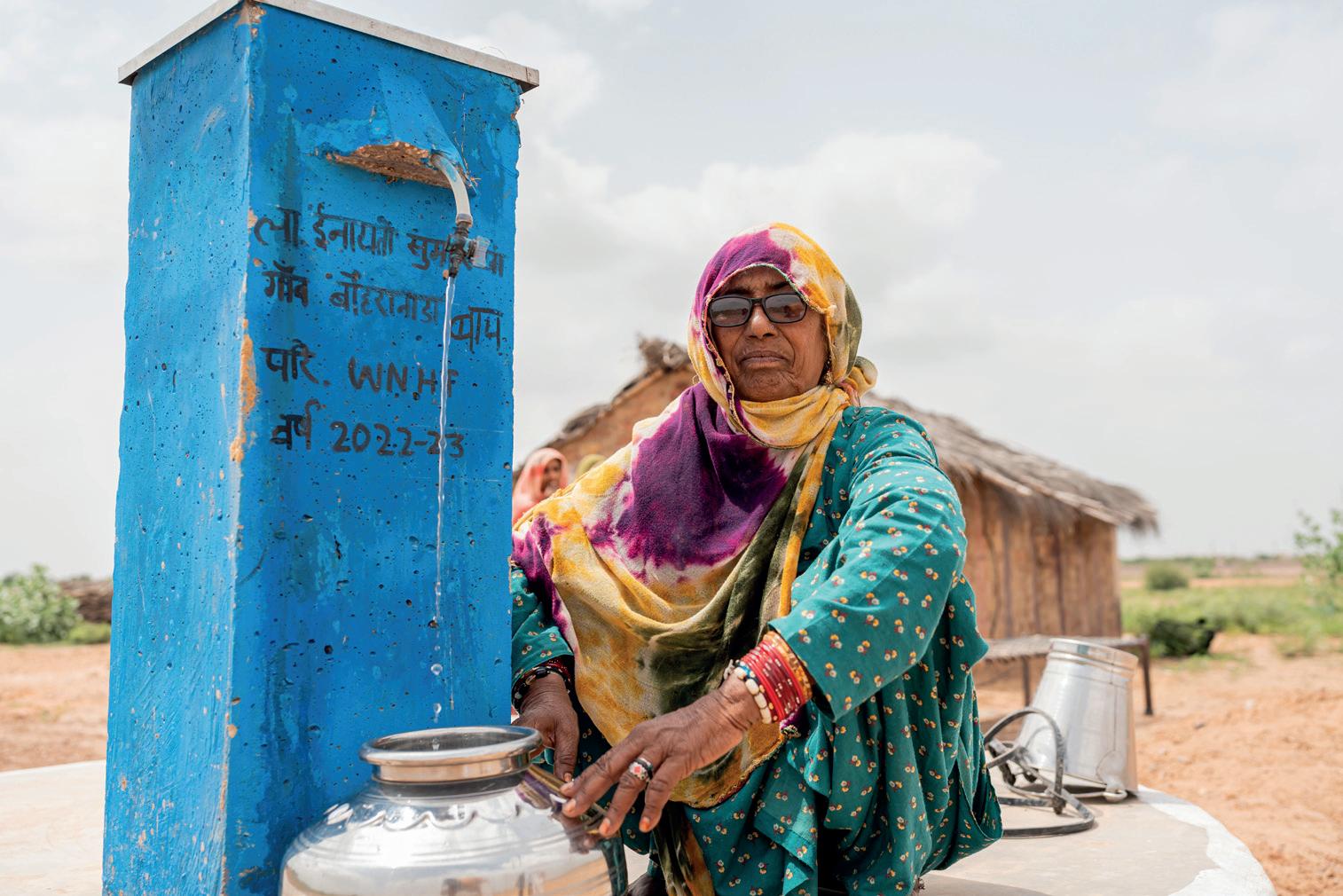
Life in the Thar Desert, in north-west India, is tough. Getting water every day often means a gruelling trek over many hours. Inayado, 70, told us that this left her little time or energy for anything else. Age International supports a local organisation to install rainwater harvesting tanks, which are then owned and maintained by older people in the community.
Inayado had one of these water tanks installed in her village, and it transformed her life. Now, not only does she have access to clean water nearby, but it’s also given her a sense of pride and respect. She shares: “Since the tank was constructed, I’ve gained respect. People in the community see what we’ve done.”
Help older people live with dignity and respect
Many older people, like Inayado, struggle to access what they need to live with dignity. Age International believes in building a fairer world with older people. They are bringing together supporters who share this belief. Grandparents United is a community of people who donate monthly to Age International.
Sharing the challenges and the joys that ageing brings Signing up to Grandparents United enables supporters to join a growing group of people who understand the challenges but also the joys that ageing can bring. The community helps to fund healthcare, life-saving emergency support and income security for older people around the world living in poverty and facing some of life’s most challenging situations.
It also helps fund initiatives such as older persons associations, which are run by older people and provide much-valued social connections. You don’t need to be a grandparent to join Grandparents United; you just need to believe that together, we can make a real and longlasting difference for older people.
Empowering healthy ageing: combatting loneliness through fitness and social connection

As individuals can expect to live longer in the UK 1 , life expectancy rises in the UK, supporting healthy ageing has never been more important.
Staying active in later life isn’t just about maintaining physical health; it plays a vital role in mental and emotional wellbeing.
Movement boosts health and connection
Regular exercise can help older adults preserve mobility, boost confidence and maintain independence. It also helps prevent falls, which cost the NHS over £2.3 billion annually. 2 Just as importantly, group exercise can provide older adults with a powerful sense of connection, helping to reduce the loneliness and isolation that many face.
There are numerous benefits to staying active as we age, from improved mobility to increased independence and reduced risk of injury. Yet, the emotional benefits are equally important, as physical activity triggers the release of positive endorphins, which contributes to a more positive outlook, improved mental health and better overall quality of life, contributing to a sense of purpose, joy and community.
Why connection is key to healthy ageing
Loneliness remains a serious concern for many older people, due to a lack of social connection or poor health, often leading to depression and cognitive decline. 3 Building meaningful social connections can help counter this, particularly in care home settings. Initiatives, like ‘Be Great Fitness,’ are great examples of how movement and community can come together. By delivering group fitness sessions in care homes, they create opportunities not just for physical activity but social engagement. In many care settings, tailored movement sessions have become a powerful tool for enhancing the lives of older people. These activities offer more than physical benefits; they foster a sense of community and shared experience. Combining purposeful movement with meaningful social engagement helps create a sense of belonging that is essential to healthy ageing.
Healthy ageing is about more than just physical fitness; it’s about staying connected, confident and engaged. With the right support, later life can be a time of purpose and lasting wellbeing. References
1.
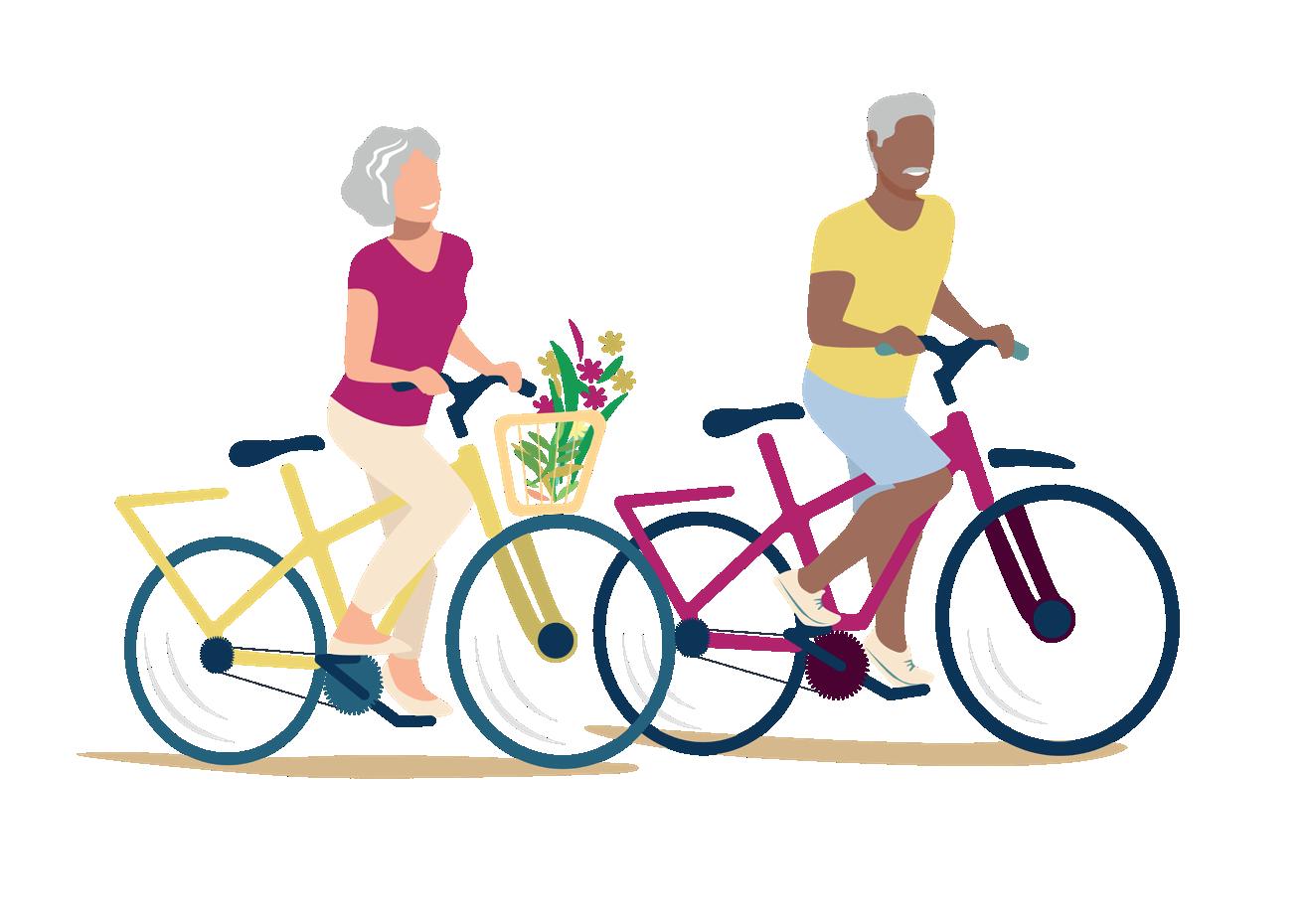
WRITTEN BY
WRITTEN BY Ellie Johnson Policy Officer, Care England
cure for dementia
Dementia affects one in two people in the UK.1 Supporting us in finding a cure will keep people connected to their families, their world and themselves for longer.
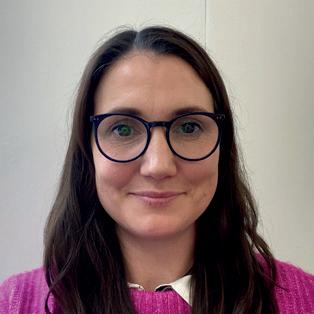
Athird of our vital research is funded by gifts left in wills, from people like you. Dementia robs us of everything that matters: our memories, our connections, our story. With one in two affected by the condition, this needs to change.
Science powers future cures
Advances in medical research have already given a brighter future to millions of people with diseases such as polio and HIV. As dementia is also caused by diseases, we know it too can be cured. That is why Alzheimer’s Research UK exists. We work with the best scientific minds and organisations, funding cutting-edge research that will transform the way we treat, diagnose and prevent all forms of dementia.
Gifts in wills make our research possible Gifts in wills are vital to our scientists’ work towards new life-changing treatments. They cost you nothing in your lifetime and are the best way to ensure the future of dementia research. Big or small, all gifts are crucial in ending this devastating condition.

We should all be regularly reviewing our wishes for later life and making sure our wills are up to date so that the family, friends and causes we love most are taken care of. If you are living with dementia, it is important to
do this sooner rather than later to make sure your wishes are known.
We should all be regularly reviewing our wishes for later life and making sure our wills are up to date.
Get your free ‘Gifts in Wills’ guide today
Our guide includes useful information such as:
• How a gift in your will can make a difference and how you can support Alzheimer’s Research UK in this kind and generous way
• Frequently asked questions about making and updating your will
• What to do if you or a loved one has dementia
Reference: 1. Office
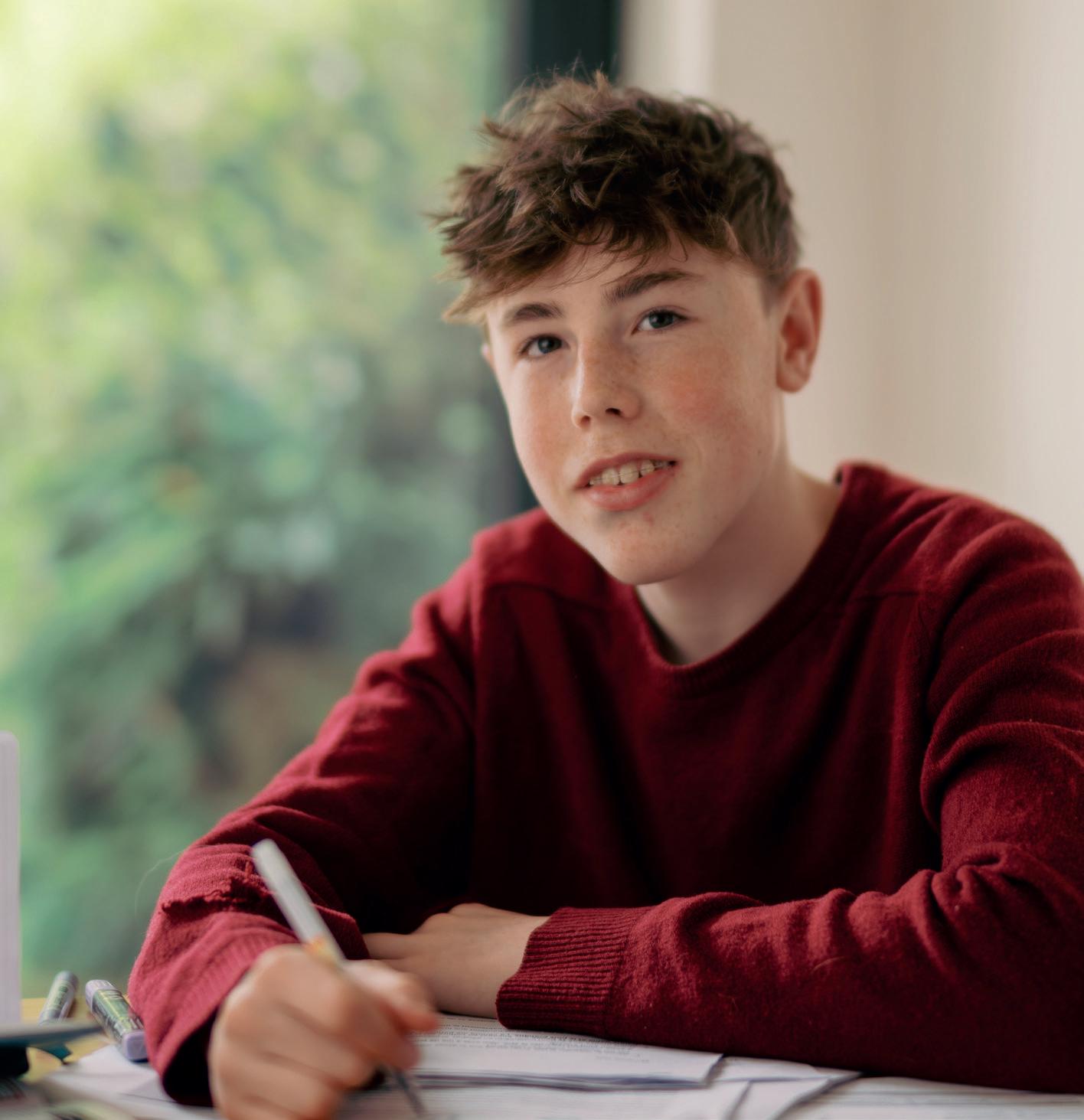
of Health Economics. 2023. Dementia in the UK: Estimating the potential future impact and return on research investment.
Why the UK is embracing gifts in wills
Over the past decade, we’ve seen a quiet but powerful shift in how people across the UK are thinking about the legacy they leave behind.

More and more, people are embracing the opportunity to include a charitable gift in their will. It’s a choice that not only reflects their values but has the power to transform the world for future generations.
Growing awareness of wills and their impact
Our research 1 at Remember A Charity shows that over one in three charity supporters with a will have included a charity, alongside any gifts for their loved ones. From medical research and hospice care through to poverty relief, animal welfare, conservation and loneliness prevention programmes, these gifts are funding vital services at the heart of our communities.
So, what’s driving this change? For many, it’s the recognition that even a modest gift can make a meaningful difference. For those who have supported a charity for years, leaving a gift simply seems like the natural next step. Others feel it’s a way to ensure the causes they care about are protected for future generations — a lasting expression of what matters most to them.
Financial and social benefits of wills
There’s also a growing awareness of both the financial and social benefits of gifts in wills. With ongoing economic uncertainty and rising demand for charitable services, these donations can strengthen charities’
stability long into the future. With inheritance tax (IHT) impacting more estates each year, many people are rethinking how best to pass on their wealth.
Leaving a charitable gift can reduce the taxable value of your estate. Such donations are tax-free, and if you leave 10% or more of your net estate to charity, then the overall IHT rate reduces from 40% to 36%. So, while it’s always worth getting professional advice on such matters, donating in this way can be a wonderful way to make your money go even further and do more good.
Supporting communities into the future

Ultimately, a gift in your will isn’t just about the financial impact. It’s about hope, kindness and continuity. As more people embrace this generous act, we’re welcoming a world where everyone has the chance to leave a truly lasting legacy for the causes they care about long into the future.
Reference 1. Remember A Charity / OKO, Stages of Change Study 2024 - 2000 UK charity supporters age 40+


WRITTEN BY
Anaish Yilma-Parmar Chair, Remember A Charity
How you can help end hunger across the UK
Right now, one in seven people in the UK face hunger and hardship. Every day, we see how people come together to support their neighbours.
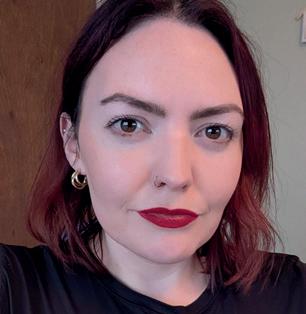
Imagine a future where no one in the UK ever needs to rely on a food bank again. This is the vision that drives Trussell, and one you can help make possible.
Supporting people with essentials
With over 1,400 food bank locations across the UK, we help provide emergency food and compassionate support to people struggling to afford the essentials. Last year alone, nearly 3 million emergency food parcels were given out. That’s roughly one every 11 seconds.
Behind each food parcel is someone facing impossible decisions between buying food or paying the bills and covering other essential costs. We can change this. Together, we can build a future without the need for food banks — alongside people like you and people like Sheila, who left a gift to Trussell in her will.

An opportunity to address root causes of poverty
Gifts like Sheila’s also enable Trussell to pioneer innovative initiatives such as our Pathfinders programme, uniting local organisations to tackle poverty at its roots. By addressing the causes of hardship — low income, insecure work and inadequate social security — we move closer to our vision of ending the need for food banks for good.
Even a small percentage of your estate can have a significant impact, ensuring your kindness continues to change lives long into the future.
Sheila believed that no one should face such difficult choices. Her generosity helped provide emergency food parcels for hundreds of families, essential training for dedicated volunteers and practical advice services that help people move beyond hardship and achieve lasting stability.
Together we can end hunger in the UK
Even a small percentage of your estate can have a significant impact, ensuring your kindness continues to change lives long into the future. Your will is more than a legal document; it’s a reflection of your values and your opportunity to shape a fairer society.
Leave a lasting mark on communities
A gift in your will can build communities where people don’t just survive but thrive. Like Sheila, you can join a powerful movement committed to ending hunger and creating stronger, fairer communities — at no cost today, but with a lasting impact tomorrow.
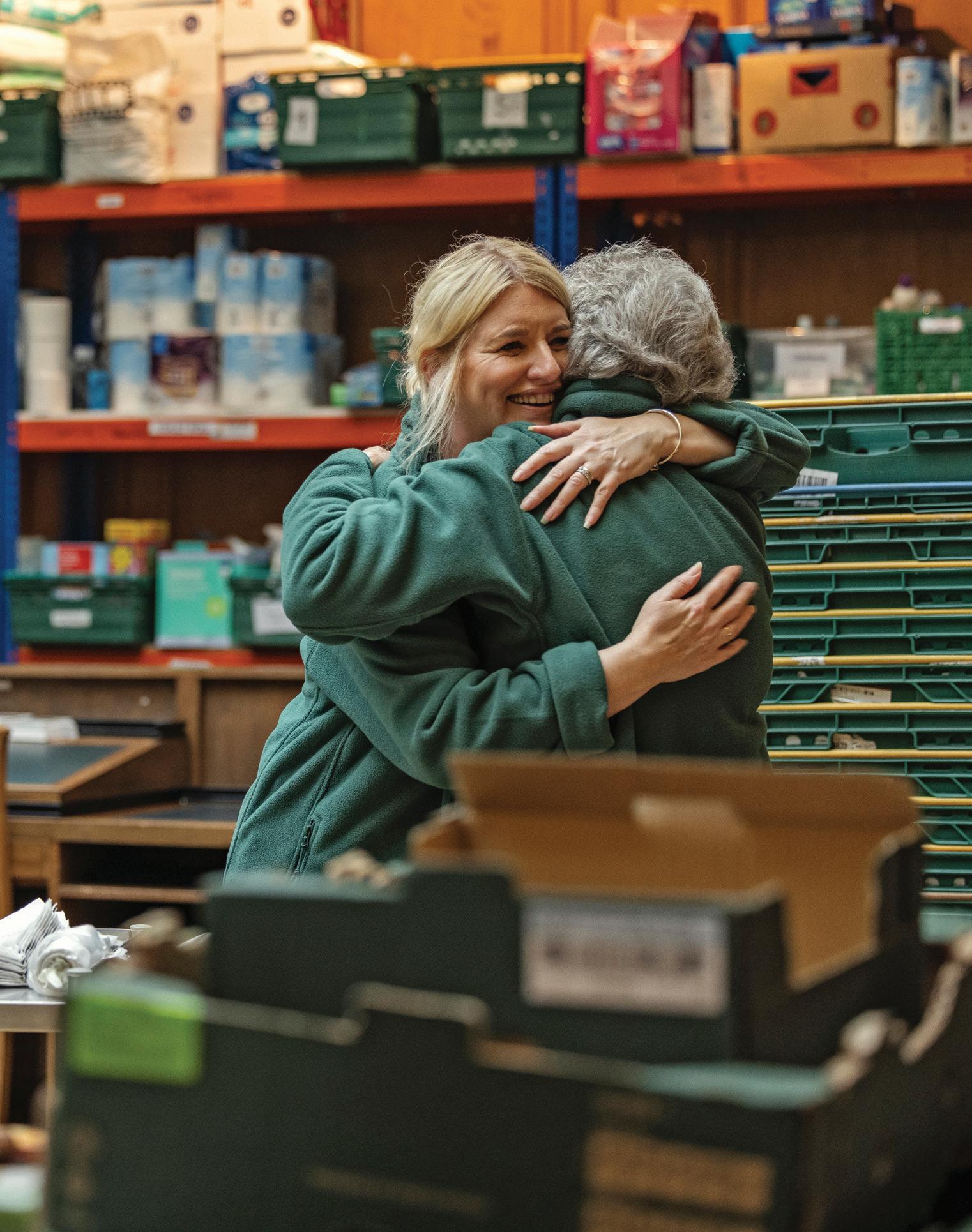
Trussell images/Dan Prince
WRITTEN BY Christianne McKenzie
Senior Giving Manager, Trussell
Ways to create change and leave a mark through gifts in wills
Learn about just a few of the many remarkable examples of wonderful wills that continue to change our world.

WRITTEN BY
Part of what makes the decision to leave a gift in your will so special is how deeply personal it can be — and that it allows you to play a role in shaping a better future.
Preserving a stretch of the river for nature and the local community
Douglas and Kathleen Hulme shared a love for walking along the River Weaver near their home. When Kathleen sadly passed, Douglas found solace by the riverside. To mark this special connection, Douglas left an incredibly generous gift to the Canal and River Trust in his will. This gift has enabled the charity to preserve that stretch of the river, restoring two major bridges along the route where they so loved to walk. This ensures that the local community can continue to connect with nature along the river banks, while providing a special place for friends and family to visit and share fond memories of the couple.
Fund for London — pound for pound — up to £100,000, doubling the impact and inspiring future giving. The Fund raised £210,000 in 2024, supporting grassroots projects that provide women with hope, opportunity and financial resilience throughout the city. The Godin Legacy Fund has also donated £130,000 in unrestricted funding to strengthen the London Community Foundation’s work for women in the capital, ensuring Susan’s kindness continues to make a multiplying difference for years to come.
These wonderful wills show just how impactful such gifts can be.
Doubling impact to protect women needing refuge or financial support
Susan Godin’s generosity lives on through the London Community Foundation’s Godin Legacy Fund. Her gift is currently matching every donation to the Women’s
Powering global good and vital humanitarian relief worldwide
Just a few years ago, Richard Cousins, former CEO of Compass Group, tragically died alongside his family in a plane crash. Shortly before the accident, he had included a ‘common tragedy clause’ in his will, which meant that if his family weren’t alive to inherit, his £41 million estate would be donated to Oxfam. Out of tragedy came an extraordinary gift that is powering global good and vital humanitarian relief across the world.
These wonderful wills show just how impactful such gifts can be. A charitable gift in a will, no matter what size, gives us all that chance to play our part in shaping the world and being part of that change.
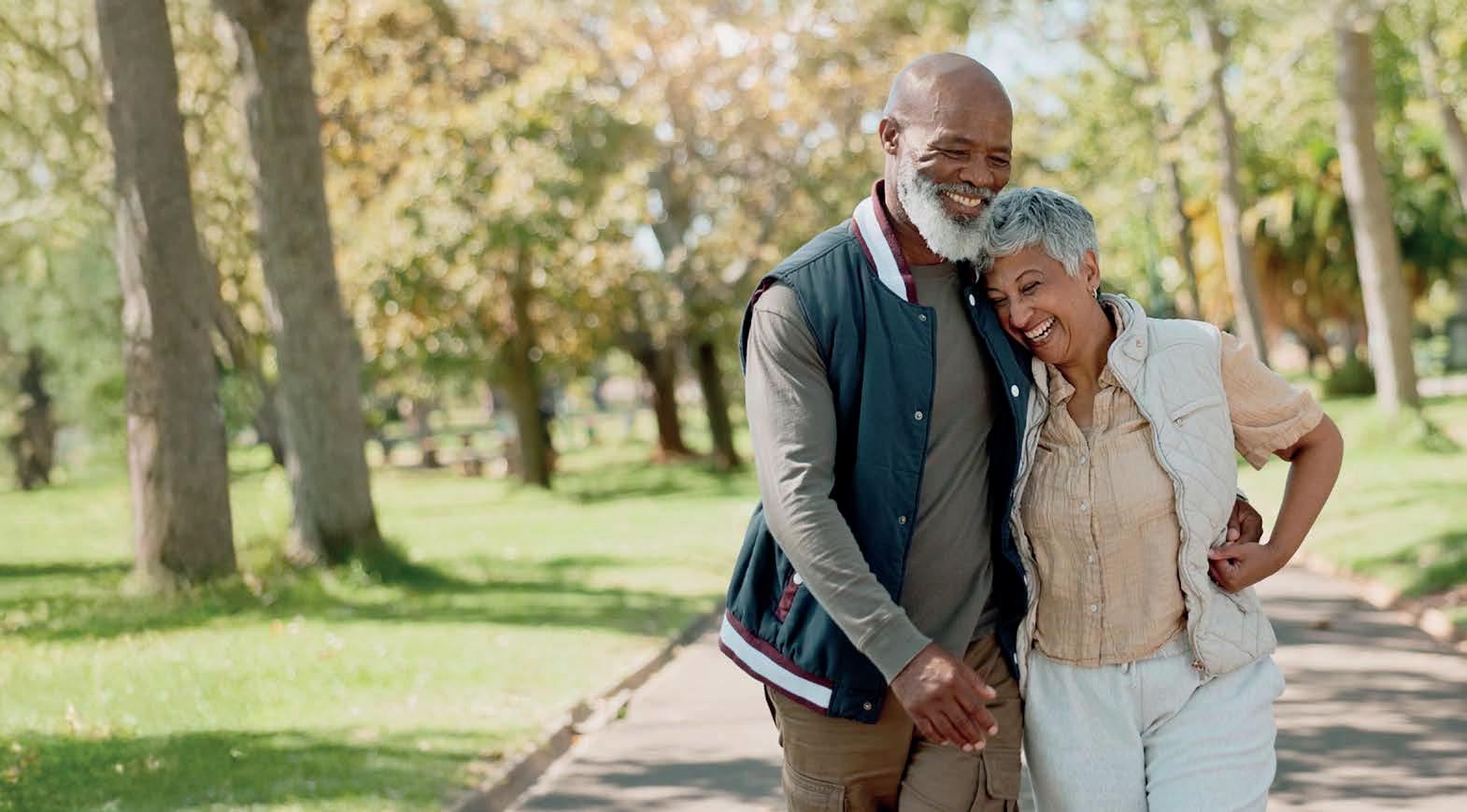

Lucinda Frostick Director, Remember A Charity
Leave a gift in your will to help spark a revolution in cancer care
Priyanka is a married mother, working as a schoolteacher and children’s life coach, navigating raising children alongside recovery from grade 3 triple negative breast cancer.
Priyanka was incredibly shocked to be diagnosed with cancer when she was 36, while her daughters were two and four years old. After chemotherapy and surgery, mastectomy and reconstruction, Priyanka is now in remission and breaking down the taboo of talking about cancer, especially in the South Asian community and with children.
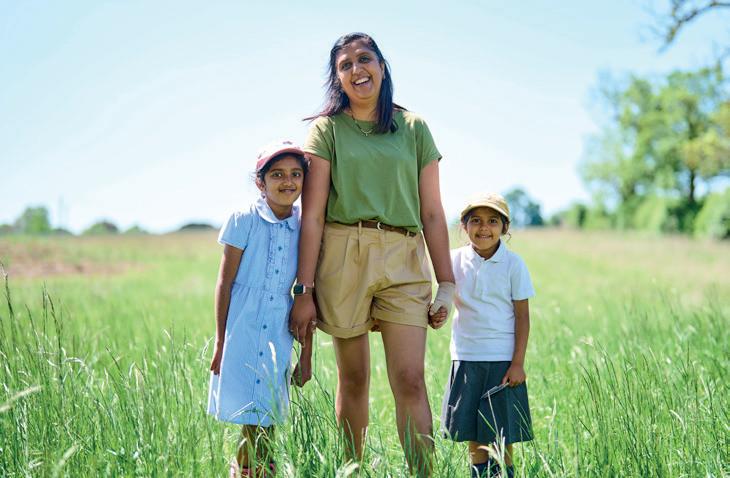
Offering invaluable guidance
Priyanka credits her Macmillan nurse with helping her daughters understand her diagnosis and treatment. Priyanka didn’t have all the answers, so the nurse arranged for the girls to visit the hospital ward when it was empty. They were able to see how everything worked and the medicines that would treat their mum.
Priyanka describes this support as ‘invaluable’ and has since written a children’s book ‘When Mummy Had Cancer’, to help others talk about cancer with their young families and ensure South Asian families are represented on its pages. Priyanka discusses the support offered throughout challenging consultations: “We were so grateful for the Macmillan nurses who were present; they guided us through those meetings.”
Support people with cancer
Everyone with a cancer diagnosis deserves the best care to meet their unique needs. We’ll do whatever it takes to help more people with cancer across the UK get the best possible care, whoever and wherever they are. Gifts in wills fund over a third of Macmillan’s vital services, like those Priyanka received.
Today, 3.5 million people need our support. This number is growing. Writing your will is the best way to protect the people and causes you care about.

Building sand dams: how to help create lasting change in poor dryland communities
Sand dams are nature-based rainwater harvesting structures that capture and store water in the world’s driest regions, providing a vital source of nearby, clean, safe water for vulnerable, drought-affected communities.
Asand dam is a concrete wall built across a sandy riverbed that can capture millions of litres of water, replenishing every rainy season. That water is stored safely from disease and evaporation within sand. One sand dam provides enough year-round water for over 1,000 people and lasts upwards of 60 years with no maintenance costs once built.
Sand dams: saving time by reducing the burden
Sand Dams Worldwide supports some of the world’s poorest people to transform their own lives and land with sand dams and climatesmart agriculture training. Penninah, 61, from southeast Kenya, used to spend hours of her day trekking back and forth from her community’s nearest river to collect water.
Sometimes, she would have to make two trips and have her children join so the family would have enough water, which meant they would miss school and have no time to play. It got so hard for Penninah that at one point, she opted to buy water from nearer sources.
However, by building a nearby sand dam with her community and applying climate-smart farming methods, with support from Sand Dams Worldwide and its local partners, Penninah has created lasting change for her family.
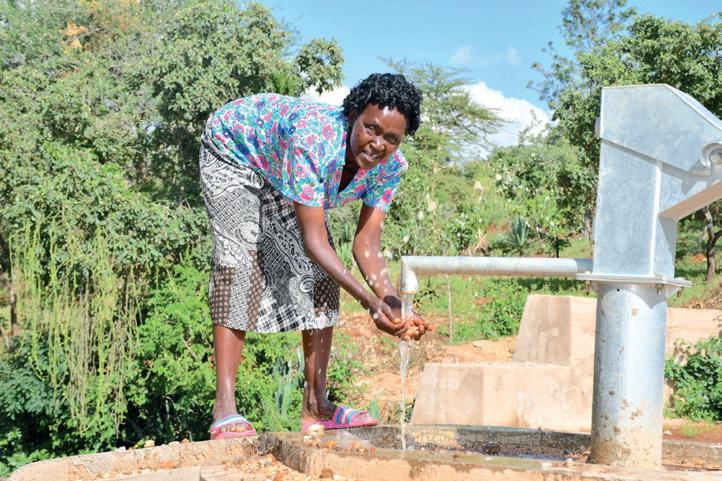
Supporting families for generations
Penninah can now live her later life with more water and food security. She explains: “I plan to grow fruit trees like mangoes, oranges, kale, spinach, tomatoes and cabbages.” She will use the income from her farming to pay for her children’s school fees. When asked how she feels when she thinks about the sand dam project, she replies: “I am happy; this is a legacy I am leaving for the next generation and my community.”
Third sector support for police is becoming crucial
With a police officer assaulted every 10 minutes (Surrey Police Federation, 2025), the physical impact or trauma can be clear, but the emotional scars are often invisible.
Being a police officer in the UK is a job like no other. Police are regularly exposed to harm while working to keep us safe, often under the most challenging conditions. On average, every two weeks, a serving police officer in England and Wales died by suicide, according to data from the Office for National Statistics (ONS), between 2011 and 2023. This has to change.
Scale of the police trauma crisis
Police Care UK is the national charity providing specialist trauma therapy and financial support for police and their families who have been impacted by harm in their policing role. Its groundbreaking research in 2018 (The Job, The Life, 2018) revealed that as many as one in five police officers are living with post-traumatic stress disorder (PTSD), often due to repeated exposure to traumatic events.
With total UK suicide rates at their highest since 1999, according to the Police Federation England and Wales STEP (Suicide Trauma Education Prevention) campaign, exposure to trauma in policing is increasing. Add in the lack of time to process incidents between jobs and the challenge of access to appropriate specialist trauma support, and this leads to a mental health crisis.
Help is needed
We found that 77% of those who contacted Police Care UK for help last year were struggling with their mental health. Following an initial assessment, 80% were recommended for treatment, and 94% of these individuals needed specialist trauma therapy, which the Charity provided free of charge.
Police Care UK delivers nationwide support as a registered charity independent of any police force and the Government. They are completely reliant on charitable donations to deliver their much-needed services, and they need help to continue to do this.
A significant amount of their fundraising income comes from gifts in wills, helping to support vital work that reduces the impact of trauma on the nation’s police.
WRITTEN
Jemma Ferguson-Gale Legacy Promotions Manager,

Donations to Sand Dams Worldwide enable more sand dam and climate-smart agriculture projects to take place, helping families and older people like Penninah to restore degraded land, rebuild livelihoods and regreen environments for generations to come.






WRITTEN BY Ian Vallance,


WRITTEN BY Dwain Lucktung Communications Manager, Sand Dams Worldwide
~Anaish Yilma-Parmar, Chair, Remember A Charity
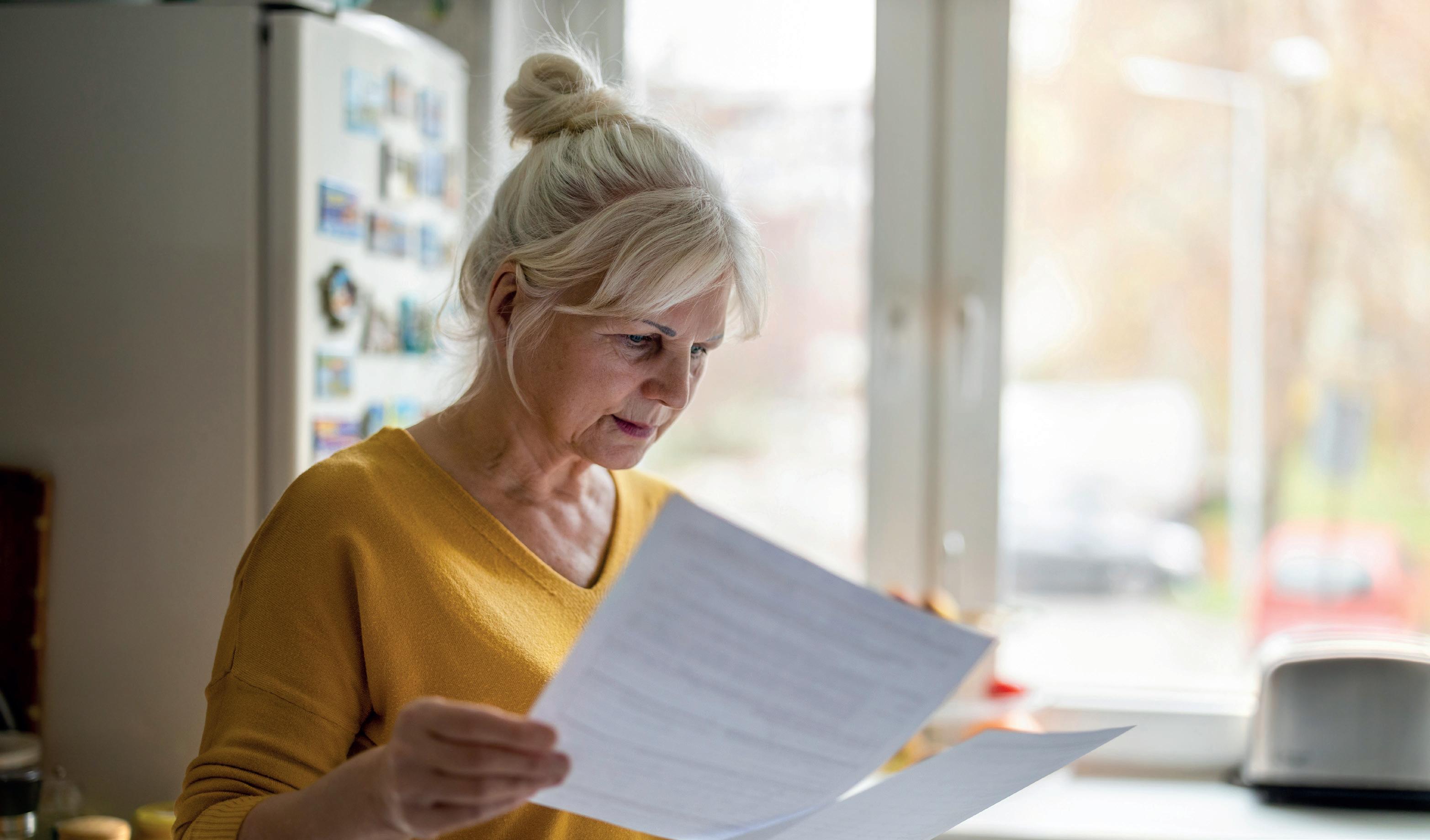


How to make a gift to charity in your will count
Leaving a percentage or residuary gift in your will can maximise charitable impact, protect beneficiaries and reduce inheritance tax for UK estates.

Legacies (money left by individuals in their wills) are a vital source of income for UK charities. There are a few ways an individual can leave a charity legacy. Those looking to maximise the impact of their charitable donation should consider whether to make a residual or percentage gift, as opposed to a legacy of a set amount.
A percentage gift means the gift amount will change with the value of an estate.
Why percentage legacies matter
Over 90% of the money left to UK charities by individuals in their wills is done so by way of a residual or percentage share of the estate, rather than a set amount by way of a legacy. Charities that receive residuary or percentage gifts will typically receive an amount around 10 times that of a donation given as a set sum. These donations can be transformative, providing charities with vital funds. With legacies of a set sum, there is a possibility that, by the time the gift is made to the charity, the value
will be less than originally intended. This is due to the ever-changing value of money over time with rising inflation.
Balance in legacy giving
Another aspect to consider with a legacy of a set amount is that they are paid out from an estate first. This could mean that, should an estate fall in value, the gift to charity would come out first and reduce the amount that goes to the other chosen beneficiaries.
A percentage gift means the gift amount will change with the value of an estate — both up and down — ensuring all beneficiaries, both charitable and non-charitable, will receive a proportion of the estate.
Inheritance tax reduction
A significant benefit of leaving a charitable gift in a will, whether by a set sum or residuary gift, is a reduction in inheritance tax. Gifts to qualifying charities are exempt from inheritance tax. Broadly speaking, estates that leave 10% or more of their taxable value to charity benefit from a reduced rate of inheritance tax, paying 36% instead of 40%. Finally, always consult a legal professional before creating or making changes to your will.
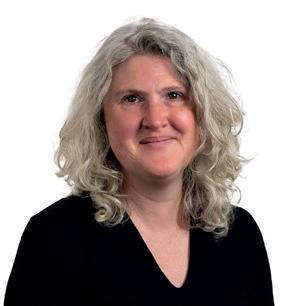
Help end alcohol harm with a gift in your will
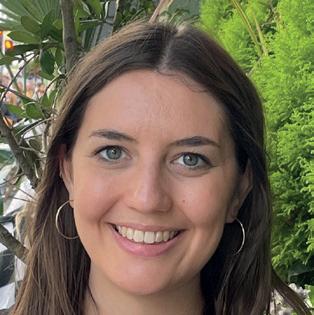
Last year, 29 people died every day as a direct result of alcohol harm in the UK.1 Each of these deaths is a tragedy, and heartbreakingly completely avoidable.
Together, we can end alcohol harm
Every 24 seconds, someone comes to Alcohol Change UK for information and support, and we want to be there for every single one. People across the UK need independent, honest information about the impacts of alcohol — free from shame, stigma or blame. We give people ways to understand their relationship with alcohol. We offer practical tools, which are always free, to make changes to improve health and wellbeing — like our Try Dry® app, which helps you understand your drinking pattern and cut down, with expert tips for making lasting change. We support people by providing helpful advice to be there for others too, whether that’s a family member, a colleague or a friend.
Importance of support tools
Carolyn, who used our Try Dry® support, shares her experiences: “My brother Michael held my hand and told me, ‘If they save me, I’m never drinking again.’ Five days later, he passed away in hospital at the age of 52. I found myself unable to cope with stress, and I don’t think I had ever really processed the grief of my loss. My drinking escalated further; I became worried that I was going the same way as my brother.
We support people by providing helpful advice to be there for others too, whether that’s a family member, a colleague or a friend.
“In December 2020, I decided I was going to complete the Dry January® challenge 2021. After the first month of not drinking, I felt so much better that I decided to do another month, then another, and so on. I have not drunk alcohol since then.”
Opportunity to help end alcohol harm
It is estimated that there are 600,000 dependent drinkers in England alone; 2 combined, that would be the third largest city in England. Did you know that by leaving just 1% to Alcohol Change UK in your will, you can help us be there for them — for their families, for everyone — all while leaving 99% to support your loved ones. References
Alcohol-specific deaths in the UK - Office for National Statistics
WRITTEN BY Tessa Bonser Senior Associate, Trusts & Estates Team at Stone King and Remember A Charity Campaign Supporter


The Alcohol Change Report | Alcohol Change UK
To find out more about making a will and leaving a gift to us, email fundraising@ alcoholchange.org.uk, call 020 3907 8480, or scan:

WRITTEN BY Megan Hall, Fundraising Manager, Alcohol Change UK
Paid for by Alcohol Change UK
How you could help create a better world for children
Support children like Tawhida to have a good education, bringing hope for a brighter future. Create a lasting impact by including UNICEF UK in your Will.

UNICEF responds for children in emergencies and works every day with communities and families to support better healthcare, education and protection for children around the world. Every child has the right to learn, attend school and make friends. Yet, too many children face barriers in getting to school and completing their education, losing pivotal opportunities for shaping their own lives. UNICEF works with partners to increase access to quality education, transform education systems and improve learning outcomes worldwide.
How education transforms lives
Tawhida enrolled at a UNICEF-supported learning centre in Sunamganj, Bangladesh, last year. At age 12, it was her first experience in education due to the distance of schools from her village. In class, Tawhida met Tania, also 12 and new to school. They quickly became best friends, studying and playing together. Now, Tawhida is learning to read, write and solve maths problems. Her favourite story is The Lying Shepherd. Tania loves poetry.
Supporting community resilience
Last year, flash floods hit their village four times. “I couldn’t go to my learning centre. When I couldn’t meet Tania, I felt really sad,” says Tawhida, showing that school — a vital place for learning — is also where friendships are made and nurtured.
Best friends Tania (left) and Tawhida, 12, love learning at a UNICEF-supported centre in flood-prone Sunamganj, Bangladesh. Thanks to a resilient teacher and community support, they can continue their education and friendship even during floods.
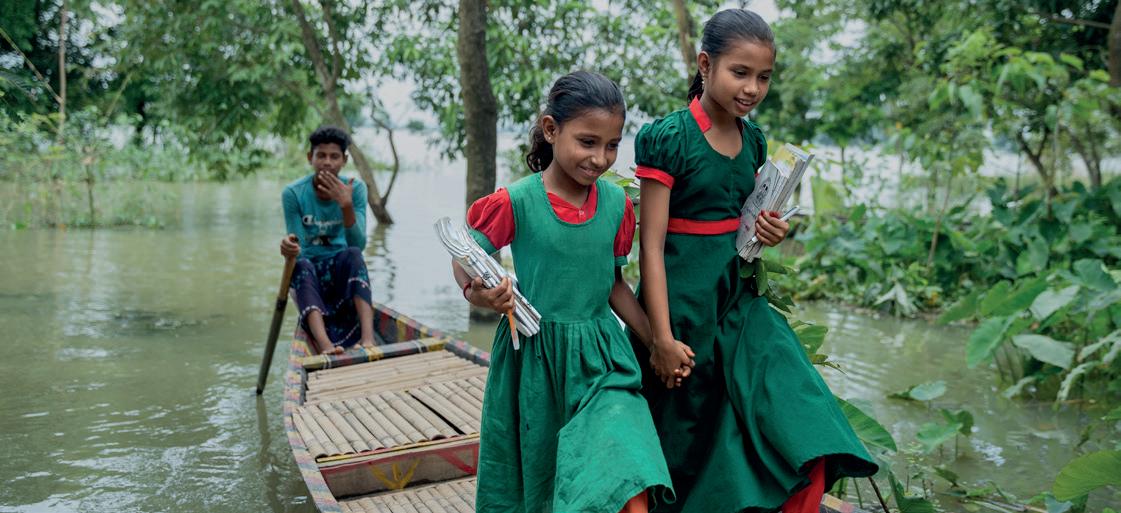
UNICEF supports community plans to keep children learning despite fierce climate challenges. Learning centres are set up to be climate-resilient, with communities trained in disaster-coping skills.
Husna Begum, the girls’ teacher, undertook the training. She says: “I try to make my students happy and cope with the situation.” During recent floods, a carpenter opened his courtyard as a refuge, and villagers helped relocate the learning materials, allowing Husna to resume teaching.
A global community for children
In Bangladesh, one in three families cannot send children to school due to long distances and climate related disasters that make journeys even harder. “I was afraid of sending my daughter to school. I am very glad that I could enrol her in this project,” says Sufia, Tawhida’s mother.
Learning centres are just one of the ways UNICEF helps children transform their lives. In 2024, UNICEF helped provide 26 million out-of-school children with access to education.
Your Will, their tomorrow
We bring together a global community determined to create a better world for children like Tawhida and Tania. With a gift in your Will to UNICEF, you can be part of that community always.
